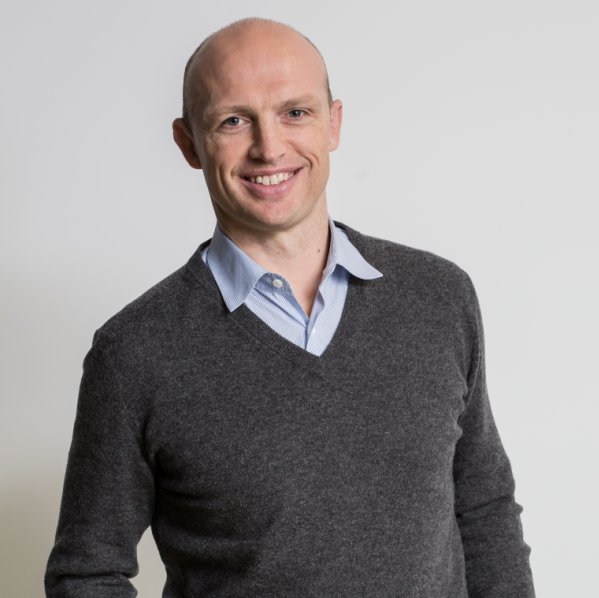Guest post from Matt Dawson, The Instant Group
From Professional Rugby to Professional in the Workplace Industry. Matt talks about the rising popularity of coworking, his transition to working more regularly from the flexible workspace environment, and three lessons he got from Rugby that have helped him get the best of coworking and the workplace industry.
Matt Dawson won the Rugby World Cup in 2003 with England and has a successful media career presenting for the BBC. He is now forging a new career in business, he started with food and facilities group Sodexo, but he has now joined The Instant Group.
Co-working has become hot news of late, and why not?
The chance to work in well-designed workspaces, in amazing locations, at relatively low prices – what’s not to love?

Fun fact: the rise in co-working spaces coincides with the rise in the number of self-employed workers across the UK.
Since the last recession many people have decided to become consultants, one-man bands, project workers etc. Call them what you will – the official term is “contingent workers” – but they are growing, and I suppose I am one of them as well.
In the U.K., the number of these workers now accounts for 14.6% of the total workforce in 2016. A 2.6% increase from 2005, for which contingent workers represented 12% of the workforce. Though 2% might not seem like a significant rise, it actually amounts to being an extra half of million people, give or take a few.
Most of us in this worker segment-if you will- work from different locations throughout the week, with different sets of people. This means adopting a different MO in each location, remembering different names, and generally getting on with people!
In my rugby career, I was lucky in that I only ever played for two clubs – Northampton and Wasps – though I did have to get used to different set ups with the England rugby team and, with the Lions.
And these changes over time left me with valuable lessons, which I’m putting into practice now.
Number 1: Always keep asking questions.
I have learnt so much from every professional environment I have been in and continue to do so.
Back with the Lions in 1997 it was a real eye opener to go from the England team to the Lions team with players from across the UK and Ireland. These were guys who only a few days before had been my rivals, my competition.
Those six-week tours taught me a lot in terms of learning from those around me and asking them questions to improve my game and change my habits.
We were sharing strategy, techniques, and, even, bedrooms; it was a totally different environment to be thrown into.
Even though it was an elite environment, the success was built on everyone contributing and having the ability to add value to overcome a significant challenge.
Number 2: Learn when to keep quiet!
This has always been a hard one for me (!) but even more so now in my business career. There are a lot of people I work with who have been in the industry for a long time and know the workspace market like the back of their hand.
A second career can provide lots of challenges, but it also provides with the opportunity to gain more experience in a short period of time.
From being a leader on the rugby pitch, where my role was to be the liaison between the backs and forwards and the ref, I now sometimes find myself in a different role of learning from those around me and getting my head down. What I’ve learned is that sometimes less chatting from my part has a positive effect, as it by draws out more intelligence from those around me.
Number 3: Every workplace has a different culture.
Having never spent much time in a workplace, now that spend two or three days a week in one, I have gotten to get familiar with some of the various nuances of the workplace and their particular moods.
For instance, Instant has a large sales team on the floor, and when the end of the month is nigh and the calls are being made, the buzz is noticeable and seems to inject the whole office with life.
In many ways this is no different to my old Rugby match days – leave the forwards to contemplate the physical challenge ahead while the backs play cards or joke around!
It is always a good idea to soak in the culture of the workspace you are in, whether it is contemplative, buzzing, or silent – each atmosphere has its virtues depending on what kind of work you need to get done.
As coworking and flexible working grows – and I have no doubt they will – then we are all going to have to get used to fitting into different environments.
The analogy I would use is: treat each space like a dinner party with people you don’t know – ask questions from the outset to your fellow guests, don’t talk about yourself and, as the courses progress, bring other people into the conversation!



 Dr. Gleb Tsipursky – The Office Whisperer
Dr. Gleb Tsipursky – The Office Whisperer Nirit Cohen – WorkFutures
Nirit Cohen – WorkFutures Angela Howard – Culture Expert
Angela Howard – Culture Expert Drew Jones – Design & Innovation
Drew Jones – Design & Innovation Jonathan Price – CRE & Flex Expert
Jonathan Price – CRE & Flex Expert














